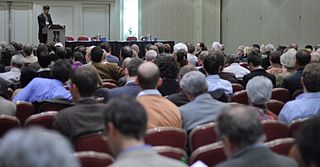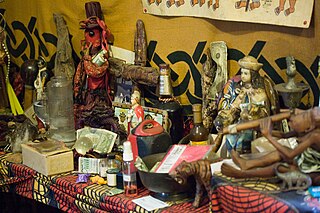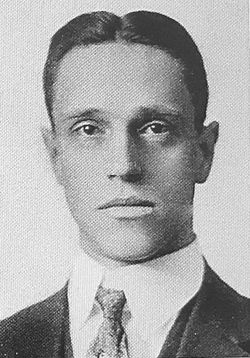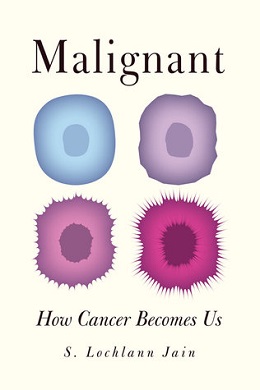
Melvin Kranzberg was an American historian, and professor of history at Case Western Reserve University from 1952 until 1971. He was a Callaway professor of the history of technology at Georgia Tech from 1972 to 1988.

A hackathon is an event where people engage in rapid and collaborative engineering over a relatively short period of time such as 24 or 48 hours. They are often run using agile software development practices, such as sprint-like design wherein computer programmers and others involved in software development, including graphic designers, interface designers, product managers, project managers, domain experts, and others collaborate intensively on engineering projects, such as software engineering.

French Americans or Franco-Americans are citizens or nationals of the United States who identify themselves with having full or partial French or French-Canadian heritage, ethnicity and/or ancestral ties. They include French-Canadian Americans, whose experience and identity differ from the broader community.

The History of Science Society (HSS), founded in 1924, is the primary professional society for the academic study of the history of science. The society has over 3,000 members worldwide. It publishes the quarterly journal Isis and the yearly journal Osiris, sponsors the IsisCB: History of Science Index, and holds an annual conference. As of January 2023, the current president of the HSS is Fa-ti Fan.
Thomas Parke Hughes was an American historian of technology. He was an emeritus professor of history at the University of Pennsylvania and a visiting professor at MIT and Stanford.

Technology and Culture is a quarterly academic journal founded in 1959. It is an official publication of the Society for the History of Technology (SHOT), whose members routinely refer to it as "T&C." Besides scholarly articles and critical essays, the journal publishes reviews of books and museum exhibitions. Occasionally, the journal publishes thematic issues; topics have included patents, gender and technology, and ecology. Technology and Culture has had three past editors-in-chief: Melvin Kranzberg (1959–1981), Robert C. Post (1982–1995), and John M. Staudenmaier (1996–2010). From 2011 to 2021 the journal was edited at the University of Oklahoma by Suzanne Moon. Its current editor in chief is Ruth Oldenziel at the Eindhoven University of Technology. Managing editors have included Joan Mentzer, Joseph M. Schultz, David M. Lucsko, and Peter Soppelsa.

Louisiana Voodoo, also known as New Orleans Voodoo, is an African diasporic religion that originated in Louisiana. It arose through a process of syncretism between the traditional religions of West Africa, the Roman Catholic form of Christianity, and Haitian Vodou. No central authority is in control of Louisiana Voodoo, which is organized through autonomous groups.

Science and Civilisation in China (1954–present) is an ongoing series of books about the history of science and technology in China published by Cambridge University Press. It was initiated and edited by British historian Joseph Needham (1900–1995). Needham was a well-respected scientist before undertaking this encyclopedia and was even responsible for the "S" in UNESCO. To date there have been seven volumes in twenty-seven books. The series was on the Modern Library Board's 100 Best Nonfiction books of the 20th century. Needham's work was the first of its kind to praise Chinese scientific contributions and provide their history and connection to global knowledge in contrast to eurocentric historiography.

The International Committee for the History of Technology (ICOHTEC) is an UNESCO-based non-profit-organization of scholars working on the history of technology. It was founded in Paris in 1968, when the Cold War divided the nations in the Eastern and Western worlds. At that time, ICOHTEC provided a forum for scholars of the history of technology from both sides of the iron curtain. It was constituted as a Scientific Section within the Division of History of Science and Technology of the International Union of History and Philosophy of Science and Technology (IUHPST/DHST). The first President was Eugeniusz Olszewski (Poland), with Vice-Presidents S. V. Schuchardine and Melvin Kranzberg (USA), whose role in the foundation of ICOHTEC deserves a special mention. The first Secretary-General was Maurice Daumas (France); following his initiative the French government hosted the first independent ICOHTEC symposium at Pont-a-Mousson (1970).

Jay Clayton is an American literary critic who is known for his pioneering work on the relationship between nineteenth-century culture and postmodernism. He has published influential works on Romanticism and the novel, Neo-Victorian literature, steampunk, hypertext fiction, online games, contemporary American fiction, technology in literature, and genetics in literature and film. He is the William R. Kenan, Jr. Professor of English and Director of the Curb Center for Art, Enterprise, and Public Policy at Vanderbilt University.

Abbott Payson Usher was an American economic historian. The Society for the History of Technology (SHOT) has awarded the Abbot Payson Usher Prize, named in his honor, annually since 1961.
Jennifer S. Light is Professor of Science, Technology and Society at the Massachusetts Institute of Technology. Light's research investigates the work of technical experts in the political process, with special interest in these figures' influences on US urban history. Light serves on the editorial boards of the Journal of Communication and the IEEE Annals of the History of Computing.

The American Studies Association (ASA) is a scholarly organization founded in 1951. It is the oldest scholarly organization devoted to the interdisciplinary study of U.S. culture and history. The ASA works to promote meaningful dialogue about the United States of America, throughout the U.S. and across the globe. Its purpose is to support scholars and scholarship committed to original research, innovative and effective teaching, critical thinking, and public discussion and debate.

Malignant: How Cancer Becomes Us is a 2013 book by S. Lochlann Jain, published by University of California Press. Jain writes about their experience with an advanced form of breast cancer at the age of 36.
Janet Abbate is an associate professor of science, technology, and society at Virginia Tech. Her research focuses on the history of computer science and the Internet, particularly on the participation of women in the field.
The Leonardo da Vinci Medal is the highest award of the Society for the History of Technology (SHOT), and was first given in 1962. In general this award is granted annually to scholars who have contributed outstandingly to the history of technology through research, teaching, publication or other activities. The prize consists of a certificate and a medal.

Mar Hicks is a historian of technology, gender and modern Europe, notable for their work on the history of women in computing. Hicks is a professor at the University of Virginia’s School of Data Science. Hicks wrote the 2017 book, Programmed Inequality: How Britain Discarded Women Technologists and Lost Its Edge in Computing.
Joy Parr is a Canadian historian. Parr is a professor at the University of Western Ontario and holds a Tier 1 Canada Research Chair in Technology, Culture and Risk. She is known for her work in the fields of labour and gender history as well as the history of technology.
Peter D. Norton, often just Peter Norton, is a U.S. historian, academic and author, known for a critical view of societies' relationship with the private car. Norton has written about the history of the car, from a societal U.S. perspective, describing in depth how different groups, like store owners, traffic engineers, the police, pedestrians and newspapers viewed the advent of the car in the early 20th century. He shows that there was considerable resistance to the increasing dominance of cars, not least in the cities. Furthermore he studies which viewpoint they came from. One conclusion is that the automobile industry seem to have won by appealing to freedom, as their prime argument.
Edwin T. Layton Jr. (1928–2009) was an American historian. He is best known for his work on the history of technology and engineering, in particular his book The revolt of the engineers: social responsibility and the American profession.













